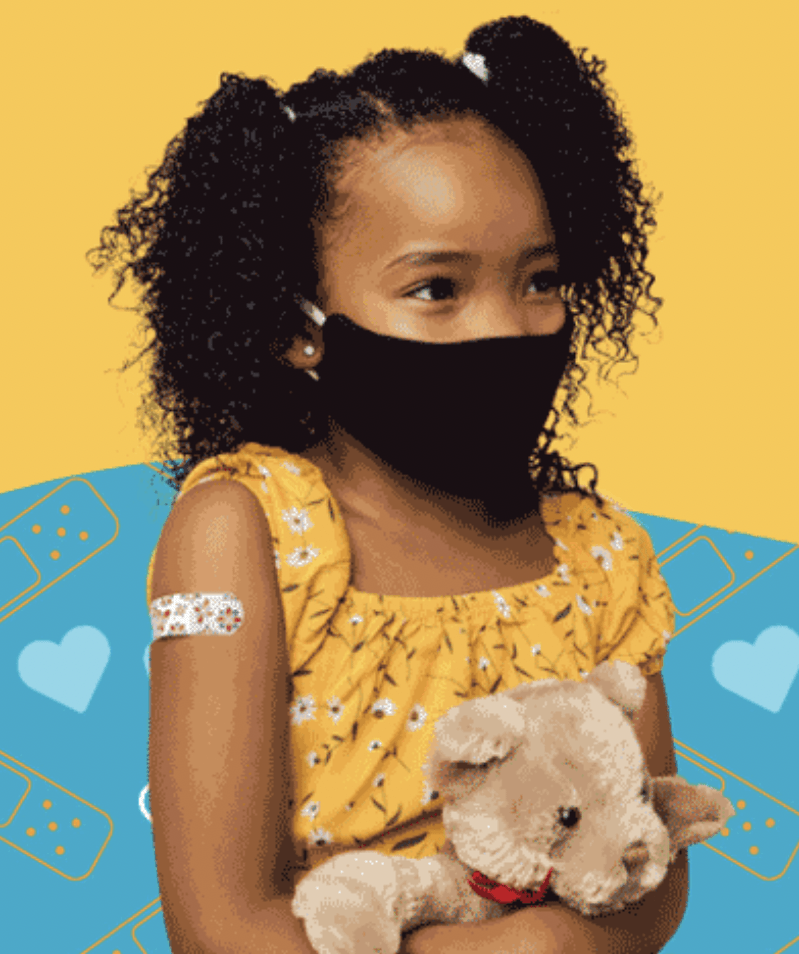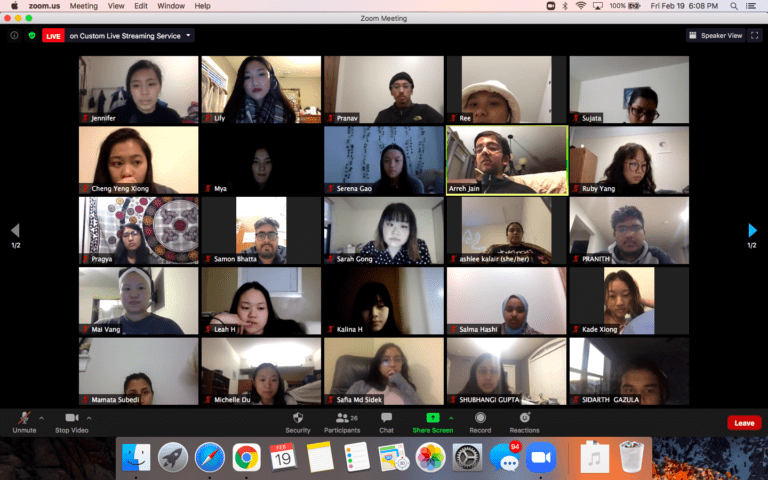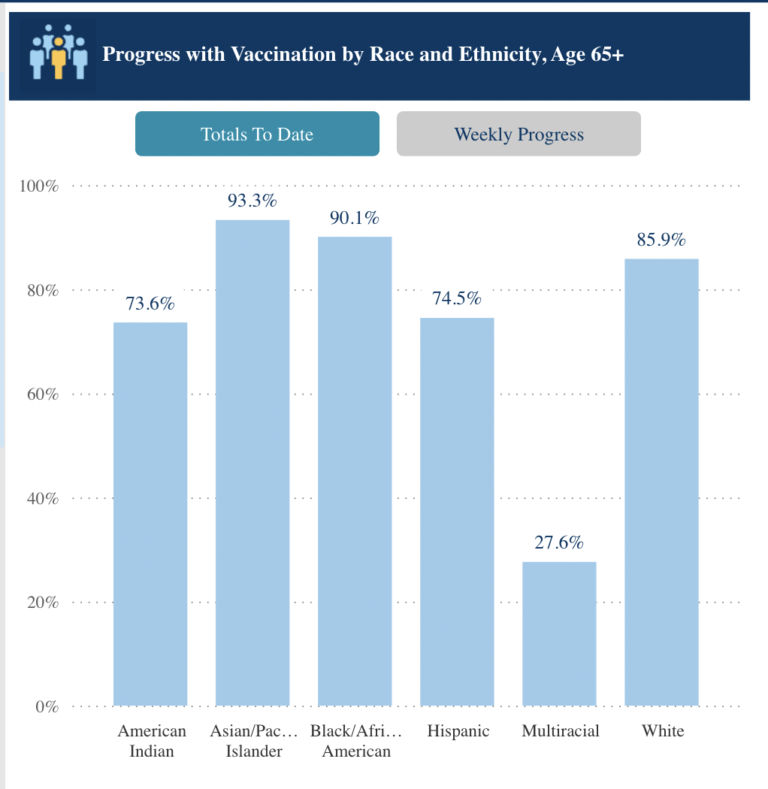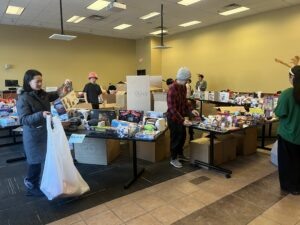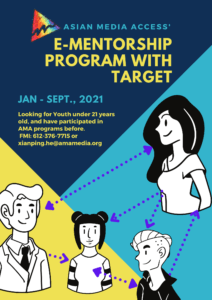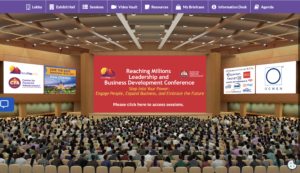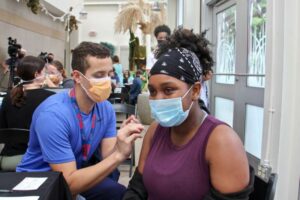 COVID-19 infection rates have increased and decreased over the past two years as Minnesota faced wave after wave of the virus, but one thing remains the same: Black communities have been hit hard by COVID. Since the pandemic began, Black Minnesotans have died from COVID at more than twice the rate of white Minnesotans.[1] But despite inequities barring the way, community members say there are still ways to rise.
COVID-19 infection rates have increased and decreased over the past two years as Minnesota faced wave after wave of the virus, but one thing remains the same: Black communities have been hit hard by COVID. Since the pandemic began, Black Minnesotans have died from COVID at more than twice the rate of white Minnesotans.[1] But despite inequities barring the way, community members say there are still ways to rise.
Overlapping challenges
Black communities are facing multiple crises in addition to the pandemic. COVID has exacerbated preexisting issues by worsening working conditions, increasing unemployment, destabilizing finances, and limiting access to high-quality education.
Donnell Bratton, the Senior Pastor of Overcomer’s Victory Church, shares that for Black Minnesotans, 2020 was not just defined by COVID shutdowns.
“We were also impacted by social unrest in the city of Minneapolis, especially around the death of George Floyd…. Everybody was active in this community, doing some work.”
COVID-19 is a serious threat to community wellbeing because it exacerbates existing inequities that communities are working so hard to address. Supporting health literacy and improving access to health care are important parts of the larger work to support Black lives.
Finding the power in healing
While the COVID virus does not discriminate, there is no hiding the fact that the healthcare system reinforces and perpetuates inequities. The US healthcare system has deep roots in racialized practices like the Tuskegee experiment and forced sterilization that weigh heavily on folks like Bratton’s mother.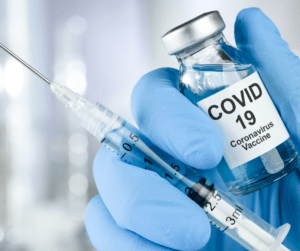
“My mother grew up in the South in the era of Tuskegee. She didn’t have access to health care until emergencies like polio, when all of a sudden the government came around asking everyone to take vaccines. But most of the time, no one was there to support their health, so many from her generation turned to the church, to God, as a source of comfort and healing. Those beliefs hold strong today.”
Bratton is aware that his mother’s experiences live on in him. Intergenerational trauma has left many in the Black community wary of medical interventions. To cope with this disturbing and violent history, Pastor Bratton has a motto: “I’m not responsible for the trauma, but I have power over my healing.” He notes that while no one can reverse the past, every individual can choose how they prioritize their health and protect against threats to their health and well-being, like COVID, in the present.
Promoting equity and long-term safety
Vaccines are a tool that can help individuals take control of their health. Minnesota’s health department has acknowledged that trustworthy health care has not historically been available to Black communities. So it has worked to make vaccines free and accessible, integrate racial equity as a pillar of its public health policy and collaborate with communities to address concerns.[2]
Time after time, data shows that people who have been vaccinated against COVID are less likely to get seriously ill or die from the virus.[3] Because of this positive outcome, 69% of Black Minnesotans have chosen to get vaccinated as of May 18, 2022.[4]
Taking a day off of work to visit a vaccine clinic and deal with normal side effects can be a hassle, but the vaccine side effects wear off in a couple of days. The alternative — getting COVID — is an extreme health and financial burden that can have serious long-term effects.
Contracting COVID prevents you and those around you from going to work and school for at least five days. Some of the virus’s effects on your health — like shortness of breath and difficulty concentrating — can last months or longer. Everyone has the right to weigh the risks and benefits of preventive measures and choose the path that is right for them.
Overcoming the historical medical trauma experienced by Black communities will take more than scientific facts. Community leaders like Pastor Bratton can be a bridge, but communication has to go both ways. Public health institutions must share important vaccine information, but they must also listen to and learn from Black communities about their experiences and needs. Building a larger conversation about health literacy and healthcare access will make communities stronger and more resilient to future public health crises.
Tools of power and choice
Decisions regarding health and vaccination are personal, but it can be helpful to discuss with trusted friends and family members around the dinner table. Pastor Bratton often raises discussions about health in church because it is a center for community and healing.
“Pastors and spiritual leaders play a role in educating and guiding communities. Whatever your denomination or faith, we share the value of caring for our neighbors. But I also want you to know that caring for yourself and your health is equally important for the spirit. We believe in God even though we’ve never seen him. We can’t see COVID, but that doesn’t mean it’s not real. It has caused a lot of suffering in our community that could have been prevented with masks, social distancing, and other preventive measures.”
The pastor emphasizes that everyone was born with the gift of choice, and he encourages folks to use that power to make good decisions about their health. It is everyone’s right to question and learn about COVID and ways to avoid serious illness. Taking control of individual health can help folks get back to church, work, school, and advocacy in person. Community organizations like Project HEALINGS are here to continue the conversation with communities and are working to make sure that healthcare equity improves for COVID-19 and beyond.
[1] 0.35% compared to 0.16% respectively as of May 11th, 2022. Minnesota Department of Health. (2022). Data by Race/Ethnicity. COVID-19 Updates and Information – State of Minnesota. Retrieved May 18, 2022, from https://mn.gov/covid19/data/data-by-race-ethnicity/index.jsp
[2] Peters, J. (2021, May 21). Minnesota’s vaccine equity director, Dr. Nathan Chomilo, has a lot of inequity to fix. Sahan Journal. http://sahanjournal.com/health/minnesota-vaccine-race-equity-chomilo/
[3] Study shows COVID-19 vaccines offer lasting protections. (2022, January 12). UNC News. https://uncnews.unc.edu/2022/01/12/study-shows-covid-19-vaccines-offer-lasting-protection/
Katella, K. (n.d.). Comparing the COVID-19 Vaccines: How Are They Different? Yale Medicine. Retrieved May 18, 2022, from https://www.yalemedicine.org/news/covid-19-vaccine-comparison
[4] Minnesota Department of Health. (2022). COVID-19 Vaccine Data. COVID-19 Updates and Information – State of Minnesota. Retrieved May 18, 2022, from https://mn.gov/covid19/vaccine/data/index.jsp
Vaccination empowers learning about overall health and wellness PDF Format:

